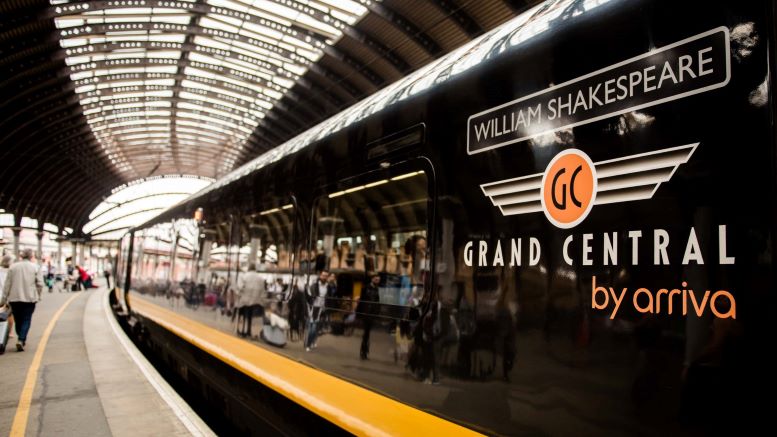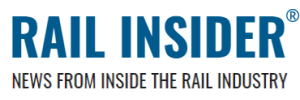
In the UK, two open-access train operators – Hull Trains and Grand Central – have already suspended all services. Even though they are owned by large groups, they have to live on their fare income and, at present during the Coronavirus (COVID-19) pandemic, not enough people are travelling by train to pay the costs of running them.

David Reed, senior executive, access and licensing, at rail regulator the Office of Rail and Road (ORR), explained the difference back in June 2019. “There are two types of train operator running passenger services in Great Britain,” he said. “Franchised operators hold contracts with the government to run services, while open-access operators work independently of, and often compete with, franchises.
“Open-access operators, such as Hull Trains and Grand Central, introduce competition which has been shown to deliver benefits to passengers.
“Any would-be railway operator which wants to run trains on the network must seek ORR’s approval of a track access agreement with Network Rail – this sets out where and how often the operator intends to run trains.
“We look at what the fair and efficient use of network capacity is and what impact extra services could have on the performance of existing services, especially on busy parts of the network. Where there are competing applications for limited network capacity, we assess the costs and benefits of the available options.
“For open access applications, we must also consider our statutory duties to promote competition for the benefit of rail users; and take into account the Secretary of State for Transport’s funds and guidance.
“We seek to balance the benefits that open access operators can bring through increased competition (e.g. through lower fares or innovation) against the potential costs to incumbent operators and to the Secretary of State through lower franchise values. We do this through our ‘not primarily abstractive’ test which looks at whether the new services would generate sufficient new revenue, not just take it from current operators, and the new economic equilibrium test which looks at the overall impact of proposals on existing franchises.
“It’s an interesting area which allows for potential new services where there is capacity and passenger demand.”
Financial lifeline
During the current crisis, as the franchise operators have large and complex contracts with the Department for Transport, the government temporarily suspended those normal franchises and transferred all revenue and cost risk to the government for a limited period, initially six months. Train operators continue to run services day-to-day for a small predetermined management fee.
Thus, the franchise operators divested themselves of the financial burden of running empty trains. The government now takes all of the ticket revenue (if any) and pays the operator to run the service.
However, the same lifeline was not thrown to the open-access operators. They have no government contract – they just pay a fee to be allowed to run their trains. With the trains almost empty, there is no ticket revenue but the operator still has to pay the access fee as well as all of their staff and other costs (maintenance, cleaning, depreciation, finance). They therefore had little option but to cease operations and wait for the passengers to come back.
That left some routes without train services. So LNER, which is now actually government owned and operated since the previous franchise-holder handed the service back to the DfT, is having to run extra services to cover for the gaps left by the open-access operators.
One could say that the government encouraged competition, welcomed the open-access operators as they both competed with the franchise holders and offered services to towns and cities that they didn’t, but has now given all of its support to the franchise holders in this time of crisis and has left the open access operators out in the cold.

European dilemma
Don’t think that this a purely British problem. Czech open-access operator Leo Express, for example, has exactly the same difficulties, with the addition that international borders have closed. So the company, which carried 2.5 million passengers in 2019 on routes to Poland and Slovakia, as well as operating a service in Germany between Berlin and Stuttgart, is now running a single service – one train a day in each direction between Prague and Bohumin, on the Czech/Polish border.

Speaking to the magazine International Railway Journal, Leo Express board member and former CEO Peter Köhler said: “For the second half of March and April, we will be about five per cent of what we expect. This situation is putting us at risk, as well as the other open-access operators that are relying on ticket revenues.
“We are, of course, actively talking to the Ministry of Transport to see if we can get some direct support, but so far there is nothing that I think we could deploy, other than what is generally available to the industry. We were already at our limits beforehand and this is now definitely a situation that may put ourselves at serious risk of going out of business.”

Nick Brooks is secretary general of Allrail – the Alliance of Rail New Entrants – which represents independent passenger rail operators and was created three years ago with the purpose of promoting competition in the passenger rail market. He says that the situation is the same right across Europe.
“It is all the more serious because, in many cases, state incumbent operators continue to receive directly awarded subsidies for domestic and cross-border long-distance routes that overlap with those of long distance open access operators, such as between Vienna and Linz or between Prague and Brno or cross-border between Prague and Krakow. This means that, even in a crisis, the state incumbents enjoy an inherent advantage – it is not as obvious as what has happened in the UK, but it is the same.
“Instead, we argue that open access should be part of any temporary COVID-19 schedule and supported with state funding too, until the crisis is over. For example, in the UK, there was no need to get LNER to operate all long-distance trains from London King’s Cross. It would have been much fairer to have Grand Central and Hull Trains continue on those lines they serve and have LNER cover everything else, where it is the only operator, such as between London and Scotland.”
Rescue plan
Allrail is concerned that open-access operators need to reduce fixed costs fast, while, at the same time, securing the necessary cashflow to sustain capacity and still deliver a few remaining services during the crisis. Lockdown measures to tackle the COVID-19 pandemic are annihilating the viable business cases of many open-access operators – the kind of companies that have the proven ability to attract new passengers to the rail sector once this crisis is over.
The danger is, many of them may no longer be around when the time comes. Allrail is therefore proposing a rescue plan that will ensure that the open-access operators have the liquidity they need. While welcoming the State Aid Temporary Framework recently adopted by the European Commission, Allrail hopes that EU Member States will make the best possible use of it.
In addition, in order to ensure that the competition currently provided by open-access operators, Allrail stresses that the industry needs the following measures to be applied quickly by EU Member States:
- Direct grants to cover lost income, with caps for capital-intensive industries being higher than the €800,000 cap stated in the Temporary Framework;
- State guarantees for all existing loans and the ability to postpone lease payments;
- Protection of workers from loss of income (short-time work schemes);
- Deferral of payments for statutory company taxes and social security contributions;
- Ability to refund customers for cancelled tickets with vouchers rather than in cash, redeemable wherever the original ticket was purchased.
In addition, the operators need charges for state-owned track infrastructure, stations, service facilities and (rolling stock) stabling to be suspended. After all, these are under the direct control of the EU Member State governments and, if this support can be further extended until the end of 2021, it would help speed economic recovery after the crisis.
Allrail has one other axe to grind. Airlines have made much of the dire straights they are in – which the undoubtedly are – but is it fair to support short-haul airlines financially without equally supporting the long-distance open-access train operators that compete with them on routes such as Gothenburg-Stockholm and Milan-Rome?
In the current situation, all forms of mass-transport need support – franchised rail, open-access rail and short-haul airlines. To support two and not the third is blatantly unfair.



1 Trackback / Pingback